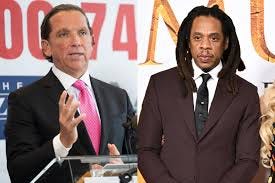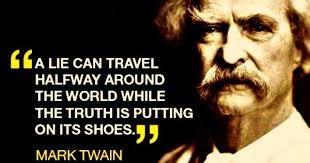Silence After the Storm: Why isn’t the media noisy about Jay-Z’s Court Victory?
In the capitalist driven cosmos of corporate media, headlines are often fueled by scandal, controversy, and sensationalism.
When attorney Tony Buzbee filed a lawsuit against Jay-Z, alleging sexual assault at an MTV afterparty in 2000, the news spread like wildfire. Major outlets and social media platforms amplified the story, with many quick to speculate and dissect the accusations.
But when the case was dismissed with prejudice on February 14, 2025, the same outlets that gave the allegations wall-to-wall coverage were noticeably quieter. This raises an important question: Why doesn’t the media apply the same energy to clearing someone's name as they do to tarnishing it?
The Media’s Selective Attention
News is a business, and sensationalism sells. A lawsuit involving a global superstar like Jay-Z generates clicks, engagement, and ad revenue. Accusations—especially of this nature—are explosive. They trigger emotions, outrage, and discussions that keep people glued to their screens.
However, when the case is dismissed, the story loses its shock factor. The media thrives on drama, and a legal victory lacks the same level of intrigue as an ongoing scandal. Clearing someone’s name doesn’t generate the same level of controversy, so it gets buried under newer, more scandalous headlines.
The Damage is Already Done
Even when accusations are proven false or dismissed, the damage to reputation is often irreversible. Jay-Z himself has stated that the case led to personal and financial harm, including losing $20 million in business contracts. Meanwhile, social media continues to circulate the initial allegations, long after the truth emerges. The media’s failure to equally amplify the dismissal contributes to a lasting negative perception, despite the court ruling in Jay-Z’s favor.
A Pattern We’ve Seen Before
This isn’t the first time the media has disproportionately covered an accusation versus its resolution. Countless public figures have faced sensationalized claims, only to receive minimal coverage when cleared. This selective reporting fuels a culture where accusations alone are enough to destroy reputations, regardless of the truth.
Holding the Media Accountable
The question remains: Should media outlets be held to a higher standard of fairness in their reporting? If they dedicate extensive resources to covering an allegation, shouldn’t they apply the same diligence in reporting its resolution? While we can’t control editorial decisions, consumers of news can demand balance and fairness by calling out bias and sharing the full story.
Jay-Z’s case serves as yet another reminder that media narratives can shape public perception—often unfairly. And until accountability becomes a priority, the pattern of selective reporting will continue, leaving truth buried beneath the weight of scandal-driven headlines.



